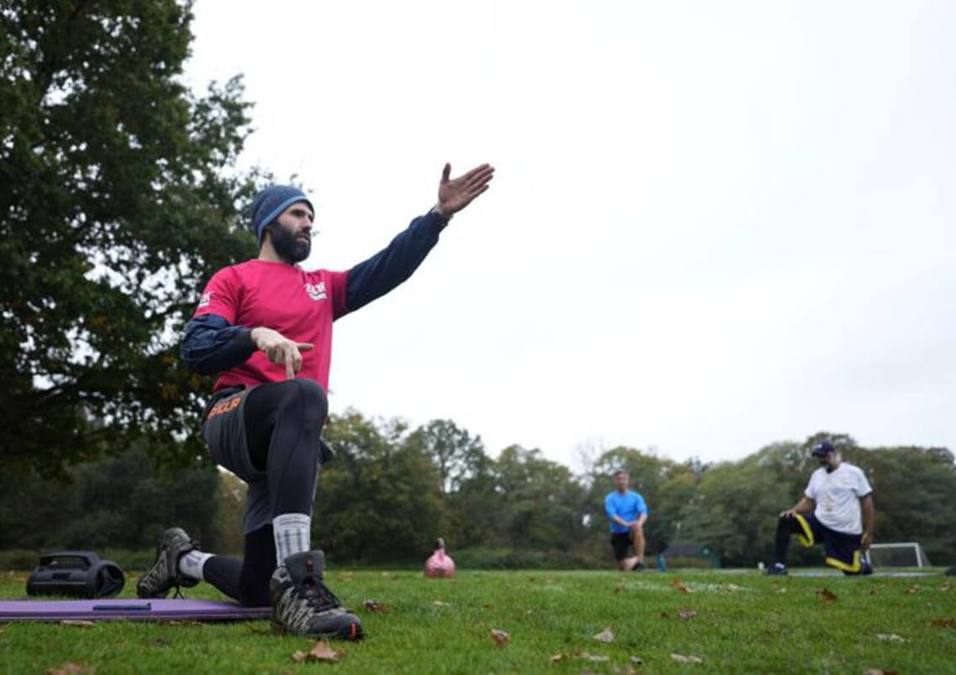Choosing a Personal Trainer

SIGN UP FOR YOUR FREE DAY PASS TODAY!
Irv Rubenstein, with a doctorate in exercise science, has been operating a personal fitness training studio in Nashville, Tennessee, for 35 years.
Unsurprisingly, he advocates for the benefits of hiring a personal trainer, whether you're a gym veteran or a newcomer.
"Anyone can teach you how to perform a bicep curl," Rubenstein explained during an interview with The Associated Press. "But only a select few can guide you through it when your shoulder is in pain."
Finding the right trainer can be challenging, Rubenstein admitted. How much do credentials and education matter compared to personality and motivational skills?
What should you consider about the cost, and how often should you engage a personal trainer? These questions are essential for anyone seeking a trainer.
"What’s the best way to find the right fit?" Rubenstein pondered. "The best fit is what works for you, but locating that can be tricky."
Education and Credentials
In the U.S. and many other countries, trainers are not licensed by a government body. Certifications are usually issued by private organizations, some of which are more respected than others, and many are driven more by profit than credibility.
The American College of Sports Medicine is well-known in the U.S., while the Canadian Academy of Sport and Exercise Medicine holds prominence in Canada.
"You should probably inquire whether the trainer is certified," said Rubenstein, who leads STEPS Fitness. "That’s important, though not crucial. It’s also wise to ask about their academic background."
He offered a word of caution.
"Avoid trainers who primarily get their information online—if you can determine that," he said.
Personality and Motivation
Guy Andrews, based in Fort Lauderdale, Florida, leads Exercise ETC. Like Rubenstein, he emphasizes the importance of client-trainer compatibility. While credentials matter, a good personality fit is crucial.
"Primarily, it’s a service relationship," Andrews noted. "You must connect with the trainer. Liking them is essential. Even if someone is highly qualified, if you don’t enjoy working with them, the partnership is doomed."
Seeking referrals from friends or gym operators can be beneficial in your search. A successful trainer-client relationship often spans multiple years.
"If someone has been with a trainer for eight to ten years, it’s a positive sign," Andrews said. "Looking good in a tank top isn’t enough."
Rubenstein added with a chuckle, "Most people sticking with a trainer for a while will claim they have the best one."
Another positive indicator is if a trainer offers a "non-contractual relationship," meaning you don't lose money if you stop the service.
"This indicates a trainer with integrity, confidence, and likely the skills to assist you," Rubenstein remarked.
When evaluating trainers, consider their motivational style. According to Rubenstein, compassion is a key trait in choosing the right trainer. However, some might prefer a rigorous approach.
"The military-style might suit the young and very fit," he said. "But for the average person, it might not be motivating."
What’s the Cost?
Pinning down a specific cost can be difficult as it varies by country and within regions. In larger U.S. cities, you might pay $100–150 per hour, while other areas could charge $50–75. Rubenstein noted that these costs are comparable to personal-care services like manicures.
For some, the cost can be prohibitive, often making it more accessible to older clients with more financial resources.
"It distinguishes those who want a trainer from those who genuinely need one," he said.
How Often to Meet with a Trainer?
Andrews and Rubenstein suggest beginners should work with a trainer two to three times per week for the first six weeks. After that, once a week might suffice, or even once or twice a month for maintenance.
"In terms of motivation, once a week isn't enough for beginners," Andrews asserted.
Rubenstein added, "For those new to the gym environment, twice a week with a trainer provides fundamental benefits—muscular, cardiovascular, balance, etc. Once familiar, they can reduce sessions to weekly or monthly, but self-motivation is key."
Setting Goals
Once you've secured a trainer, setting goals is the next step.
The four primary goals are weight management, overall fitness, special needs, and general health.
"For each client, routines may overlap, but frequency, intensity, and duration will differ," Rubenstein explained.
Andrews emphasized the importance of goal-setting in the initial meeting.
"If both parties aren’t aligned on objectives, success is unlikely," he said.
A competent trainer will identify unrealistic goals, Andrews added.
Source: abqjournal
The opinions shared in the GymNation blog articles are solely those of the respective authors and may not represent the perspectives of GymNation or any member of the GymNation team.
GET YOUR FREE TRIAL TODAY

















































































